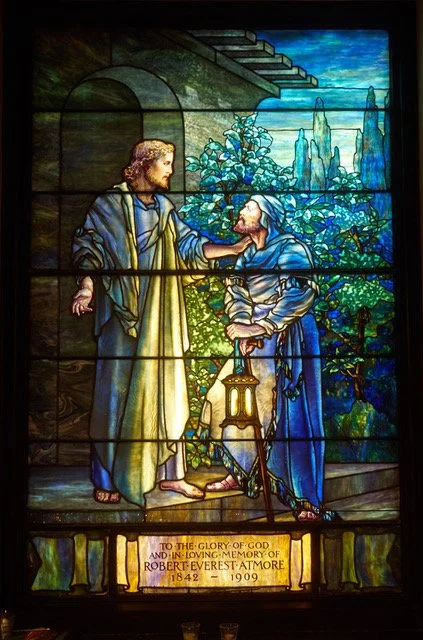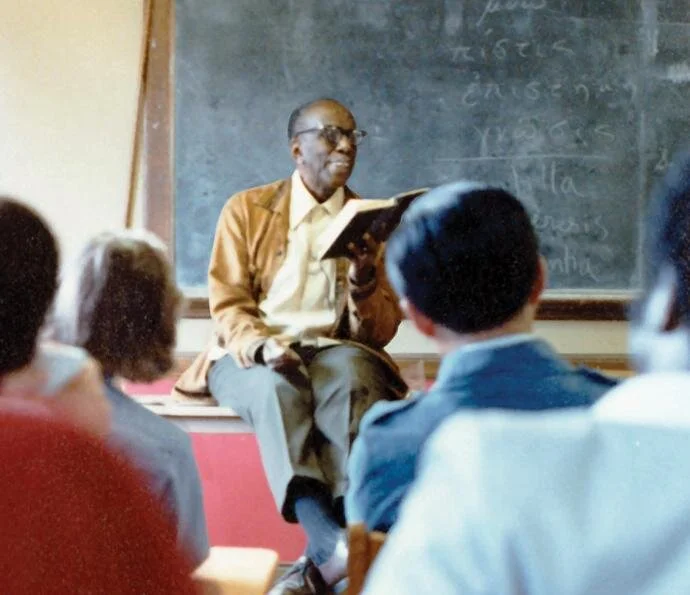Friday Reflection, Dame Julian of Norwich: God the Loving Mother Within All Creation
The significance of this medieval English woman mystic (1343-after 1416), today known only as Julian—and totally unknown to me until recently—hit me hard.
Her message of unconditional divine love defied Church doctrine of Original Sin. Her claim for a wise, loving, nourishing aspect of God as Mother, a fourth dimension of the divinity, challenged the angry patriarchal God of a sinful humanity most believed in. Her insistence on the immanence of God within all creation unified all living things and matter as equals. To become One with God, we must do so with each other and our universe.
Julian amplifies points in the Bible, Church teachings, and earlier theologians like Hildegard and Thomas Aquinas. Those legacies, as Sr. Elizabeth Johnson recently argued (Creation and the Cross: The Mercy of God for a Planet in Peril), were instead eclipsed or suppressed by the punitive alternative that took hold, devised by the seminal 11th-c. theologian, Anselm. Anonymous texts attributed to Julian, drawing on individuals who knew her, were quietly published beginning in the 17th century and absorbed within theologies of inclusion.
Her writings gained provocative force, however, with the feminist, gender, and environmental thinking of the late 20th century. No wonder they sounded so current! The gender-blended divinity alone blessed fluid sexual identities.
Her joyous message became even more timely with our own crises: the explosion of social biases, struggles, and violence, our treatment of the environment. And a pandemic that destroys, distresses, and disorients.
Julian’s authority? Direct mystical engagement with the crucified Christ. A near-death experience at age thirty culminated in sixteen “showings” over two days to relay reassuring messages to humankind being devastated by social upheaval and waves of plague. Whether newly arranged or already in place, she proceeded as an anchoress (an enclosed devout) at the humble Norwich parish of St. Julian. She lived permanently in a cell attached to the sanctuary connected by a window for worship, and reflected (likely with extensive reading) and wrote about the showings’ meaning. Through another window, however, she engaged with the street life of this bustling port city.
There, a diverse community sought her counsel and brought bread in appreciation. Whatever else she offered, the divine messages registered and spread. To judge by her texts (even allowing for translators’ license!), her language was simple, accessible to the people.
She also lived God’s messages with those on the streets—and with bees in hives in her cell that traveled far for food.
Christ’s multiple showings revealed to Julian God’s unfailing compassionate, loving, and wise side as God the Mother in the gendered family metaphors of the Bible. With the Father signifying power, the Mother took on human nature, birthed, nourished, bonded, and served her creation; “she” perfectly embodied the unified sensual, physical, and spiritual, the Oneness that challenges all theologies of dualism. The man-God Son Jesus inherited the Mother’s humanized Oneness and brought it more palpably among us.
That Oneness, suffused with grace, love, joy, and wonder, is the essence of creation, unifying and animating a harmonious diversity, penetrating all and setting a mandate. For humans that means, as Julian reports, loving everything:
“God loves all that he has created. And so anyone who, in loving God, loves all his fellow creatures, loves all that is. All those who are on the spiritual path contain the whole of creation, and the Creator. . . God is inside us, and inside God is everything.”
Christ repeatedly assured Julian that God would protect his beloved creations from our ignorant or unloving destructiveness. Yet today, prominent Julian advocate Matthew Fox claims that time is running out, with the human trafficking, genocide, profiteering, and despoiling the earth unleashed by the inherited pernicious fatalistic, nature-hating doctrine (Julian of Norwich: Wisdom in a Time of Pandemic—and Beyond, 118). Julian, he urges, is the source of our needed return to a “God of goodness and awe, beauty and justice and love (idem.)”—NOW. Then it’s up to us, bearing such a God within, to correct our course, to meet the standard, the harmonious Oneness, which Julian was shown.
Her message wonderfully fits my favorite Spiritual praising the inclusive creation, “He’s Got the Whole World in His Hands,” sung by the magical and famously beleaguered Marian Anderson. I include it here. Enjoy—Julian’s invented mantra.
—Suzanne Glover Lindsay, St. Stephen’s Historian and Curator









